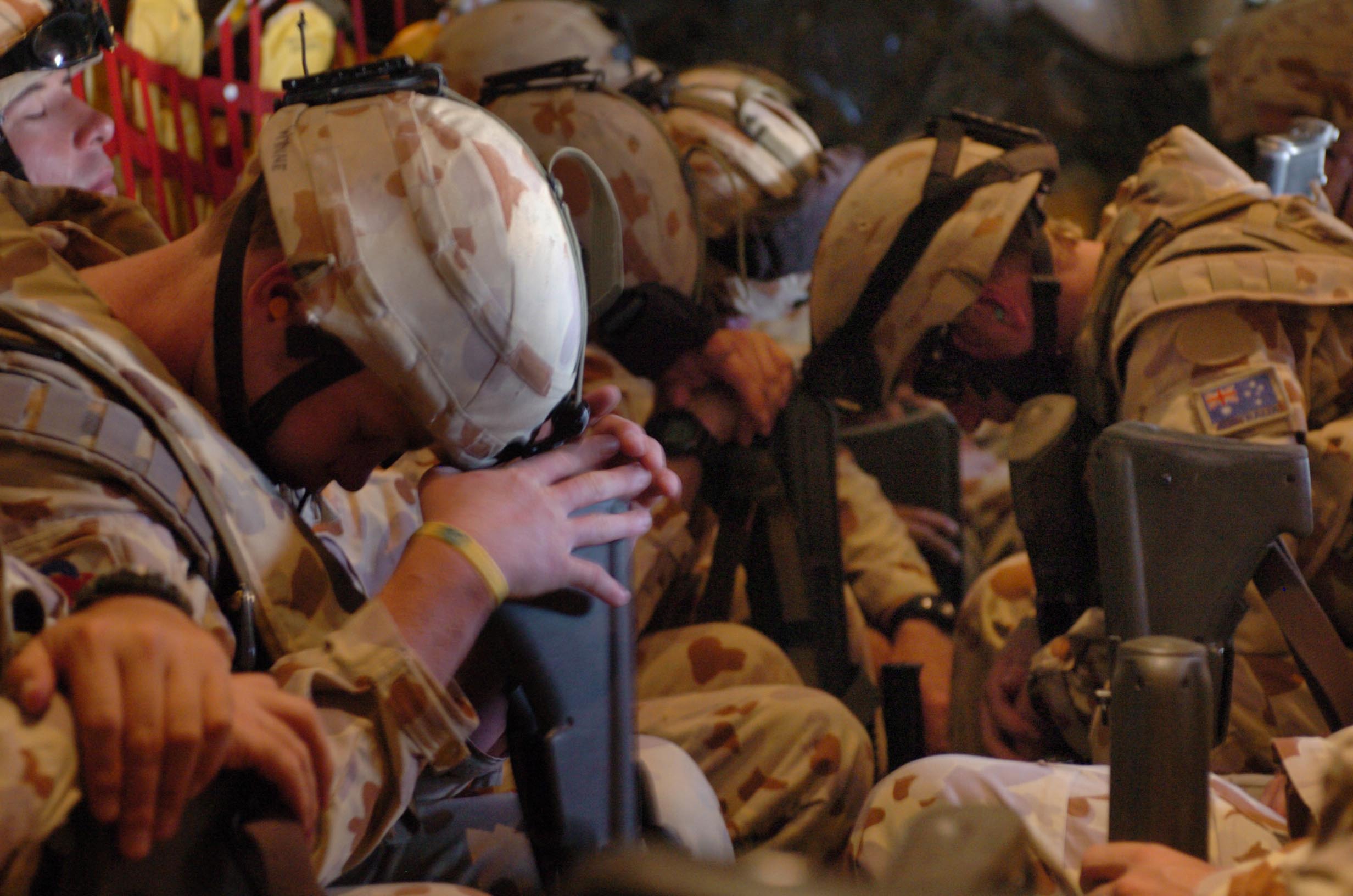Cabinet papers from 2004 reveal rerun of political woes

Many key political issues revealed in newly released cabinet papers from 2004 could easily have been ripped from the headlines of 2024.
The National Archives released hundreds of papers on Wednesday from the year former Prime Minister John Howard was at his political zenith after defeating Labor’s Mark Latham.
The documents reveal the rationale for Australia’s involvement in the Iraq war which failed to unearth suspected stockpiles of weapons of mass destruction.
The papers also show pressures at the supermarket checkout were a big concern in 2004, with cabinet considering a mandatory code of conduct for the grocery industry.
Housing affordability was front of mind leading into the election, with the cabinet backing recommendations to boost supply and for states and territories to reduce their reliance on stamp duty.
However, a submission from Howard and then-treasurer Peter Costello rejected the idea that changes to capital gains tax affected property values.
“It is not clear that the change in capital gains taxation in 1999 would have had a large impact on house prices,” the submission said.
“While there is limited scope for government to improve affordability for first and other homebuyers in the short term, governments have an important role to play in facilitating efficient housing outcomes.”
You might like
Cabinet signed off in December 2004 to sell the government’s remaining Telstra shares to help set up a Commonwealth sovereign wealth fund, also known as the Future Fund.
Problems in the aged care sector were also just as prescient in 2004, after a review at the time called the industry “immature” and “constrained by regulation”.

The year 2004 was a high point for many prominent Australians.
Ian Thorpe returned from the Athens Olympics with two gold medals and Shannon Noll topped the charts with his cover of What About Me.
The 2004 election victory would see the Howard government hold a rare majority in both houses of parliament, which allowed for controversial industrial relations reforms to pass unimpeded.
The election win saw Howard remain in the top job for a fourth term, and be the second-longest serving prime minister in Australian history.
Ahead of the cabinet papers being released, Howard defended his decision to commit troops to the 2003 US-led invasion of Iraq.
Howard said Australia’s decision to join the invasion was based on wrong information, but was not malicious.
The invasion resulted in the toppling of dictator Saddam Hussein’s regime.
Stay informed, daily
In January 2004, the administration of US President George W Bush conceded its pre-war justifications were unfounded.
Howard said he was “disappointed” by the failure of US intelligence that convinced Australia to take part.
“That was a blow,” he told reporters.
“I still tenaciously maintain the decision (was) taken in good faith based on a national intelligence assessment … which recorded a very strong belief that they had the stockpile.”
While no stockpiles of weapons of mass destruction were found, Howard insisted coalition forces found plenty of evidence of capacity to rapidly assemble them.
“We were wrong, in fact, but not maliciously,” he said.

A 2004 inquiry found Australian intelligence agencies “failed to judge accurately the extent and nature of Iraq’s WMD programmes”, but they drew the most likely conclusions from the available information.
Estimates of the Iraq War’s toll vary greatly, but several sources have claimed more than 100,000 people died as a direct result of the conflict.
When asked if he acted as an advocate for war, Howard said his role was above all to uphold the Australian national interest.
“I thought it was in our national interest to put a curb on the capacity of terrorists to get a hold of weapons of mass destruction from Saddam, and I believed at that time that he not only had programs, that he had stockpiles,” he said.
Big decisions of 2004
The National Archives of Australia released more than 240 cabinet papers from 2004, giving an insight into the critical decisions of then prime minister John Howard and his ministers.
- The national security committee agreed to scale down the presence of Australian civilian advisers in Iraq, following concern the security environment would worsen after an interim government took over from coalition authorities.
- Despite fears of insurgence violence in Iraq, then defence minister Robert Hill told cabinet Iraq was a potential model for political and economic reform in the Middle East.
- There was unease in the cabinet about requests from the US for Australian specialist investigators to assist with preparing a war crimes case against Iraqi dictator Saddam Hussein due to the likelihood of a death penalty being imposed.
- Former trade minister Mark Vaile expressed concern an UN and US inquiry into the Australian Wheat Board’s dealings with Iraq was a way for America to move in on the organisation’s stranglehold of the Iraqi wheat market, after claims the AWB paid kickbacks to Saddam’s regime.
- Briefings were held following a bomb blast at the Australian embassy in Jakarta.
- Following 9/11, cabinet discussed decision-making plans in the event a terrorist attack involving a hijacked plane took place in Australia, although ministers conceded that event with a streamlined process, it would not be responsive enough to prevent an attack.
- Cabinet noted the prime minister or defence minister could order the defence force to shoot down a plane if it was believed to be involved in a 9/11-style attack.
- Cabinet received advice on changing marriage laws to explicitly reference the union between a man and a woman after the ACT passed laws that allowed same-sex couples to become adoptive parents.
- A proposal to set up a mandatory code of conduct between grocery chains and growers was knocked back due to criticism it could lead to unnecessary regulation of the sector.
- The prime minister in a submission to cabinet rejected the idea that changes to capital gains tax increased house prices.
- Cabinet signed off on plans to sell the government’s remaining shares in Telstra in order to set up the Commonwealth sovereign wealth fund, also known as the future fund.
- Briefings were held about detained Australian David Hicks in Guantanamo Bay, who was held there on terror charges.
- Security officials warned cabinet about possible threats at the Athens Olympics, raising concern about Greek agencies to respond effectively to a major terrorist incident.
- Cabinet was also aware Australia would face an international backlash when it set up its crackdown on asylum seekers.
-with AAP









